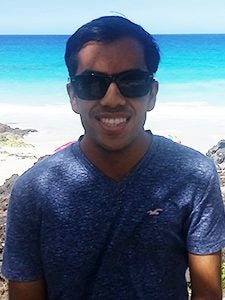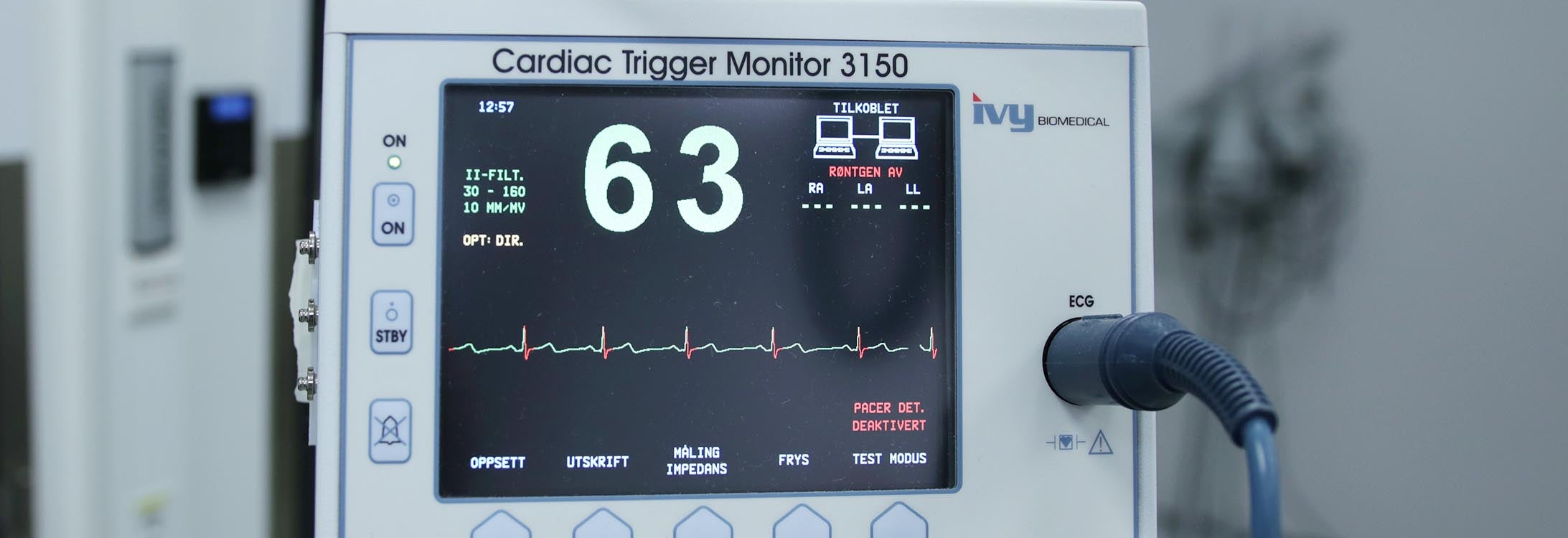Student Profile: Anup Palak Sanghvi

ECU undergraduate researcher Anup Palak Sanghvi is studying the factors that affect success rates of coronary artery bypass grafts.
Major: Engineering
Mentors: Dr. Stephanie George and Dr. T. Bruce Ferguson
Department: Department of Engineering
Project Title: “The Effect of Downstream Resistance in a CABG”
The purpose of Anup’s project is to study the effect of resistance in the artery in a coronary artery bypass graft, which is a type of surgery that enhances blood flow to the heart for patients with severe coronary heart disease. Obtaining a better understanding of this physiological factor could help physicians make more informed decisions regarding patient care and lead to an improved success rate of the procedure.
How did you get involved in undergraduate research?
After hearing about the interesting projects some of my friends were taking part in, I decided to get involved with research. I reached out to multiple professors to learn more about their research topics and the different projects they were conducting. The research Dr. George was working on sounded fascinating to me so I approached her about joining her lab. In the past year, I have learned a lot and began my own project in her lab.
Why did you choose your research topic?
I am studying biomedical engineering and preparing to attend medical school. I wanted a topic that would combine both of those interests, allowing me to advance my medical knowledge while applying my engineering skills. My current research involves studying the effect of downstream resistance in the LAD artery in a coronary artery bypass graft using computational fluid dynamics. This allows me to study an important medical procedure regarding the heart using engineering skills.
What’s been your favorite part of conducting undergraduate research?
My favorite part of conducting undergraduate research is exploring a relatively unknown topic and knowing that my work could lead to a better understanding of a procedure that affects hundreds of thousands of people annually. Additionally, I am learning a lot and gaining clinical exposure.
What challenges have you faced while conducting undergraduate research?
When first getting involved with Dr. George’s lab, I didn’t have a lot of previous knowledge of the topic that I would be researching. In order to learn more about what I would be doing and the topic I would be studying, I needed to understand what had already been studied and how my project would add to that. The biggest challenge was finding a focus within the topic on which I could expand which involved a whole semester of mostly just reading journal articles and studying old projects.
Why is your research important for the general public?
Hundreds of thousands of people receive coronary artery bypass grafts annually. Learning more about the physiological factors that could impact their success could allow physicians to make more educated decisions that could significantly impact their patient’s quality of life.
What’s your ultimate goal or accomplishment that you hope your research will help you achieve?
My ultimate goal is to make a discovery that could help advance medicine and patient care. I hope that the project that I am conducting will lead to a better understanding of the factors that affect the success of the CABG, whether or not I am responsible for the eventual breakthrough.
Do you have any advice for other students interested in conducting undergraduate research?
It is never too early to get involved with undergraduate research. If you are interested in undergraduate research, go talk to professors who are doing projects that interest you. Express your interest and ask them if you can work with them. Most professors are very open and happy to give you a chance to work with them.
